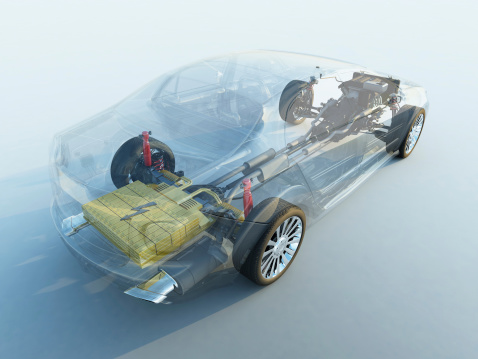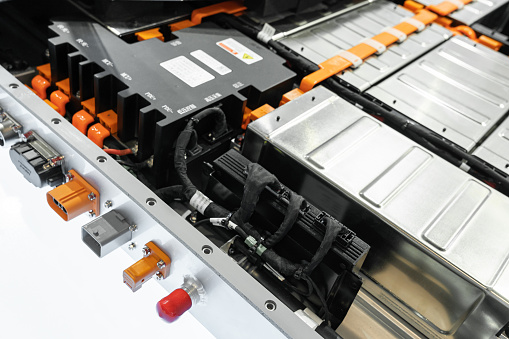April 9, 2023
ELECTRIC CAR BATTERIES IN COLD WEATHER
Electric car batteries can be affected by cold weather, just like any other type of battery. When the temperature drops, the chemical reactions within the battery slow down, which can lead to reduced performance and a shorter driving range. In extreme cold, the battery can even become damaged.
To help mitigate the effects of cold weather on electric car batteries, manufacturers have implemented a variety of solutions. One common approach is to use battery heating systems to keep the battery warm when the car is parked, so that it is ready to go when you start driving. Some electric cars also have thermal management systems that use liquid cooling or heating to keep the battery operating within an optimal temperature range.
If you live in a cold climate and are considering purchasing an electric car, it’s a good idea to do your research and find out how different models handle cold weather. You may also want to invest in a battery warmer or thermal blanket to help keep the battery at the right temperature when the car is parked. And as with any car, it’s important to keep up with regular maintenance and care to ensure that your electric car performs at its best, no matter the weather.
Extreme Temperatures Hit Electric Vehicles Extra Hard
Extreme temperatures can indeed have an impact on the performance of electric vehicles. In general, electric vehicles are more efficient in moderate temperatures, and their performance may suffer in extreme heat or cold.
In extremely hot temperatures, the high temperatures can cause the battery to degrade more quickly, reducing its lifespan and overall performance. High temperatures can also cause the battery to charge more slowly, which can be frustrating for drivers who need to quickly charge their vehicle.
On the other hand, in extremely cold temperatures, the battery’s capacity can be reduced, meaning that the vehicle may not be able to travel as far on a single charge. Cold temperatures can also cause issues with the vehicle’s electronics and other components, making it more difficult to operate.
To mitigate the effects of extreme temperatures on electric vehicles, some manufacturers have implemented cooling and heating systems for the battery and other components. Additionally, it’s important for electric vehicle owners to be aware of the impact of temperature on their vehicle’s performance and take appropriate precautions, such as avoiding extreme temperatures whenever possible and planning charging and driving schedules accordingly.
Electric Vehicles Continue to Improve
Yes, electric vehicles (EVs) are continuing to improve in many ways. This is due to a combination of factors, including advancements in battery technology, charging infrastructure, and overall design.
One of the most significant improvements in EV technology is the development of better and more efficient batteries. Lithium-ion batteries have become the standard for most EVs, but researchers are exploring other materials and designs that could lead to even greater efficiency and longer ranges. Solid-state batteries, for example, are a promising area of research that could eventually lead to faster charging times, longer ranges, and greater safety.
Charging infrastructure has also improved significantly in recent years, making it easier and more convenient for EV drivers to recharge their vehicles. There are now more charging stations available, and faster charging speeds are becoming more common, reducing the time needed for a full charge.
In addition, EVs are becoming more affordable as production scales up and manufacturing processes become more efficient. Many automakers are introducing new models with lower price points, making EVs accessible to a wider range of consumers.
Finally, EV design is improving as well, with manufacturers incorporating new features and technologies to make their vehicles more appealing to buyers. This includes advanced safety features, sleek designs, and better performance.
Overall, as the technology and infrastructure supporting EVs continues to improve, they will become an even more attractive option for drivers looking for a more sustainable mode of transportation.
Does cold weather damage batteries?
Yes, cold weather can damage batteries, especially if they are exposed to extremely low temperatures for an extended period. Cold temperatures can slow down the chemical reactions inside the battery, reducing its capacity to hold a charge. As a result, the battery may discharge faster than normal, and its lifespan may be shortened.
Moreover, exposing a battery to extremely cold temperatures can also cause the electrolyte inside to freeze, which can damage the battery’s internal components or even cause the casing to crack or rupture.
It’s worth noting that not all batteries are equally affected by cold weather. Some types of batteries, such as lithium batteries, are more resistant to low temperatures than others, like lead-acid batteries. In general, it’s a good idea to check the manufacturer’s recommendations for the minimum and maximum temperature range of your battery and take appropriate measures to protect it from extreme temperatures.


